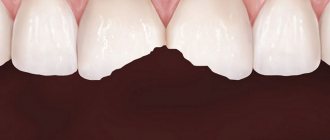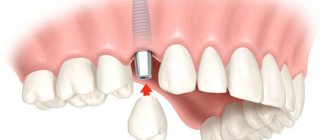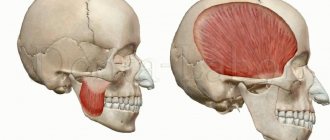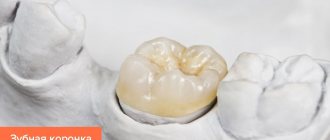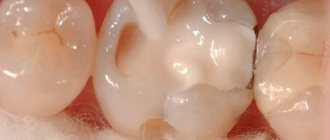What dictionaries say
There is no interpretation of this expression in Dahl's dictionary, but there is a reference to it in the explanation of the concept of “squeeze.” The author of the dictionary believes that you can grit your teeth in anger. Ozhegov’s dictionary also gives an example with the word “squeeze”, explaining the expression as “keep silent, endure.”
The synonym dictionary defines the expression as “to force oneself to restrain oneself.” The phraseological dictionary adds that in literary language this expression is considered colloquial and expresses expression. A person can use it while holding back feelings of protest.
The dictionary of many expressions interprets it as “show restraint.” Michelson's dictionary considers the expression allegorical, used in cases of describing anger or rage.
What other languages have this expression?
We find similar expressions in German and English. In German, the expression die Zähne beißen literally translates as “to bite your teeth.” It is used by E.M. Remarque. Germans can also say: Ich biß die Zähne zusammen. This literally means “I bit my teeth together.”
The English language also has this phraseological unit. J. Rolling, for example, in the series of books about Harry Potter uses the expression to gritted his teeth (“to gritted his teeth”) like this: Harry gritted his teeth and nodded (“Harry gritted his teeth and nodded”).
But there is an even more ancient expression: Bite a bullet, which literally translates as “bite a bullet.” Interestingly, this idiom was first a literal description of a procedure used in place of anesthesia. The fact is that in the 1700s, during emergency surgery on the battlefield, soldiers were given a bullet in their mouth to distract them from the pain. The man did not scream so much and was distracted: in order not to swallow the bullet, it was necessary to control its position in the mouth.
Over time, the expression “bite the bullet” has become allegorical and now means “doing something unpleasant, uncomfortable.” This could be making a difficult decision, driving an old car, passing an unpopular law for the sake of future benefits.
In French there is the same expression (mordre la balle), literally meaning “to bite the ball.” In Italian there is stringere i denti, which translates to “tighten your teeth.”
How can a depressed person support himself?
For Alice and Ekaterina, the most important element of support is the people who surround them. “You have to be careful, not immediately open up to new people, check whether they are ready to accept you,” says Alisa. — A person with depression needs an accepting environment. It is also very important to find at least some interest in your life, at least one thread that you can cling to. Music once saved me."
A person with depression needs an accepting environment
Elena Beletskaya, while agreeing with the need to support loved ones, still focuses on the behavior of the person himself. “It is important not to force things. Firstly, the drugs do not act immediately, and the treatment regimen can be adjusted more than once, says the psychotherapist. — You can support yourself by regularly being in the fresh air. One hour a day is enough. It is also worth going to bed and getting up at the same time. Sleep should last at least seven hours at night in a dark room. The diet will also not be superfluous. And one more thing: two hours before bedtime, all gadgets should be put away.”
The nature of phraseological units
When a patient comes to a doctor’s appointment and says: “I clench my teeth hard,” this indicates a certain symptom. In medicine, the following clenching of the jaws is distinguished:
- As a reaction to an event (anger, fear, physical stress).
- Involuntary grinding of teeth (bursism).
Apparently, observing people’s behavior in various situations gave rise to this expression. Interestingly, the Holy Scriptures mention “weeping and gnashing of teeth” as people’s reactions to punishment.
The life of modern people is characterized by a fast rhythm, heavy workload, all kinds of problems and stress. New diseases have appeared, caused by the body functioning at the limit of its capabilities. One of them is bursism. This is an unconscious strong clenching of the jaws, often during sleep, leading to pathology of the oral cavity and masticatory apparatus. Doctors unanimously name the reason - the inability to relax and rest, and cope with negative emotions.
How does depression manifest itself?
Story one: Alice
Alice first turned to a psychiatrist in her fourth year at the institute. According to the girl, by that time she had already been depressed for several years. “It all started when I was thirteen. I have always been a cheerful and open child. But then everything changed. I withdrew into myself, and every year this condition worsened.”
By the age of eighteen, Alice could hardly speak, feel or show emotions. Her first love completely knocked her down - the young man regularly raised his hand to the girl.
“I went to study in another city, hoping that it would become easier. It's gone. My parents hardly noticed anything, and I couldn’t even tell them what was happening. One day I just went into the forest all night. I screamed, cried... I didn’t care what happened to me. Fortunately, it worked out.”
One day I just went into the forest all night. I didn't care what happened to me
Alice was getting worse. In the student dormitory she did not communicate with anyone, did not want anything, and studied mechanically. Personal relationships did not work out.
“Nothing touched or worried me. I suffered from loneliness and lack of meaning in life. I tried several times to get a job. At the interview they told me that I was a drug addict, I looked so bad.”
Story two: Catherine
In the spring of 2022, Katya felt that there was no place left for her in her life. “I existed only for work, a child, a mother and a dog. And I was so tired of it that I couldn’t do anything at all. I had difficulty waking up, lay in bed all day and cried constantly. There was no money for a paid specialist, so I turned to the nearest psychoneurological clinic.”
When a person wants to grit his teeth
Under heavy loads, the jaw compression mechanism operates in the body. In this case, the tension is concentrated in the masticatory muscle. It increases in volume if a person is in danger and is the strongest. The average person develops a force of up to 72 kg; the Guinness Book record is about 400 kg.
Athletes are well aware of this phenomenon. They learn to relax the masticatory muscle during periods of heavy physical activity. This frees up the spine and directs energy in the right direction. This action requires enormous concentration. People who are not involved in sports are not recommended to imitate athletes, as this makes it difficult to evacuate stress. This can lead to stomach ulcers. Sedatives that lead to muscle relaxation, sagging of the lower jaw, and block the release of tension. This prevents the body from overcoming stress.
As you can see, gritting your teeth in certain situations is normal. This is, for example, what players do in tug-of-war.
How is depression diagnosed?
In the current edition of the International Classification of Diseases (ICD-10), depressive disorder is included in the “Dysthymia” heading, but is not identified as a separate diagnosis. In DSM-IV, the Diagnostic and Statistical Manual of Mental Disorders developed by the American Psychiatric Association, it is included in the section “Personality Disorders Not Otherwise Specified.”
Despite this, Russian psychiatrists often make depression as a separate diagnosis. For example, when our heroine Katya went to the PND, a specialist diagnosed monodepressive disorder.
“The diagnostic algorithm is clear,” explains psychotherapist Elena Beletskaya. - Timing is important here. If negative symptoms last more than two weeks, this is already an alarm bell and a reason to see a doctor.”
If negative symptoms last more than two weeks, this is already an alarm bell
According to the specialist, clinical depression strikes all four important areas of human life:
“ Emotionally, a person will experience constant sadness and lose pleasure in life. Motivation will also disappear - depression leads to passivity, lack of initiative or persistence in business. Cognitive symptoms include negative self-perception, hopelessness, decreased concentration, attention and memory, and confusion. A person does not have the strength to do the usual basic things. Nothing pleases me at all. The word “want” falls out of the dictionary, and all life is subordinated to the word “need”. In addition, a person gradually begins to forget the people with whom he felt good. The palette of perception of the world is narrowing, and there is no way out of the current situation,” explains the psychologist.
Depression can also have a serious impact on your physical health .
“It brings changes in appetite and sleep disturbances, fatigue, increased pain and ailments,” emphasizes Elena Beletskaya. — If you start to move through strength and live through strength, the first thing you need to do is open the Beck Depression Test Scale and perform a self-diagnosis*. It is available online."
*even if an online test shows a high probability that you have depression, this is not a reason to self-diagnose. You need to see a doctor.
In what cases is this expression used?
There are several life situations when it would be appropriate to use the idiom “grit your teeth”:
- When you need to endure something: physical or emotional pain, an unpleasant neighborhood or period of time. When for the sake of the future good you need to endure the hardships of the present day.
- When you need to restrain your temper so as not to say too much.
- When you have to do unpleasant or dangerous work.
- When you need to show courage.
All of these situations fit the meaning of “gritting your teeth.” But there are cases when this is no longer a figurative phrase, but a direct threat to health. A facial expression with clenched teeth is a sign of severe pain. Often these are heart problems. In such cases, emergency medical attention is required.
How is depression treated?
The drugs prescribed for Alice did not help. “They managed to stabilize me a little. I even got a job. And at the age of 26 it became so bad again that drugs appeared. I barely got down. Psychiatrists, learning about my suicide attempts, suggested that I go to a hospital. I refused. It took several years to find a specialist willing to treat me without putting me in a ward, and then a little over two more years to find a treatment regimen.”
For Katya, everything turned out differently. In the fall of 2022, she was admitted to one of the PNDs in her native Novgorod for two weeks. “It was terrible. I was prescribed pills again. We were all in the same department - people with depression, drug addicts, alcoholics, old grandmothers with dementia. The nurses treated us like... I don’t even know how to say it. I will never forget one grandmother. She felt very bad, and they constantly yelled at her and intimidated her. They had a clear directive: we all needed to be calmed down and calmed down. That's all."
According to the girl, she left the hospital with one thought: never agree to be hospitalized again. But, on the other hand, this experience nevertheless brought Katya back to life. Dire impressions forced her to look for any ways to support herself and not succumb to depression.
“For somatogenic or endogenous depression, drug therapy is recommended,” comments Elena Beletskaya. “This is the most effective, because the root of the problem is congenital disorders of the functioning of brain transmitters. For psychogenic, neurotic, reactive and masked depression, medications are best combined with psychotherapy. The success of treatment here depends on what became the provoking factor. If this is an isolated episode, then you can simply undergo a course of treatment; if it is a personal factor, then you will have to develop a life strategy taking into account your personality characteristics.”
“It is worth seeking help in any available place and in any available way. A psychologist is often an intermediate link between a patient and a psychiatrist and relieves anxiety several hours before a person decides to go to the doctor,” explains Beletskaya.
Let's sum it up
It turns out that this expression is a consequence of observing human behavior in various situations. It is not artificially invented and is not the creation of a writer. It turns out that it was generated by the body’s natural defense mechanisms in stressful situations. How can one not recall similar catchphrases:
- The veins are shaking.
- Fly with happiness.
- My heart jumps out of my chest.
- Be petrified by surprise.
- The hair on my head is moving.
- Goosebumps.
- My soul has sunk into my heels.
Without these figurative expressions there would be no bright, original language. People are not robots. They express their creativity in speech. And anyone who has ever experienced something similar will definitely talk about it.
What types of depression are there?
Having turned to a psychiatrist for help, Alice learned that she had endogenous depression - it was formed due to a violation of the biochemical processes in her brain. Experts called Catherine’s depression reactive - it was caused rather by exogenous, external influences, life circumstances.
Read also
Do “healthy” people exist? Ten myths about mental disorders
“The factors that cause endogenous and reactive depression belong to two fundamentally different classes,” continues Elena Beletskaya. — The first include genetic and biochemical processes in the body. The second includes social, psychological, which determine the adaptation of the individual.”
Experts identify a whole spectrum of depressive states that differ from each other in one way or another. “Depression has many forms and types. It can be somatogenic, endogenous, psychogenic, neurotic, reactive, masked. By the way, the first two have a high risk of auto-aggression or self-harm,” says the psychotherapist.
Alice confirms this from personal experience. Several times in her life the girl put out cigarette butts on herself and cut her hands. “I tried to commit suicide three times,” she admits.
According to Elena Beletskaya, suicidal thoughts are characteristic of all types of depression. But an actual suicide attempt is impossible to predict.

